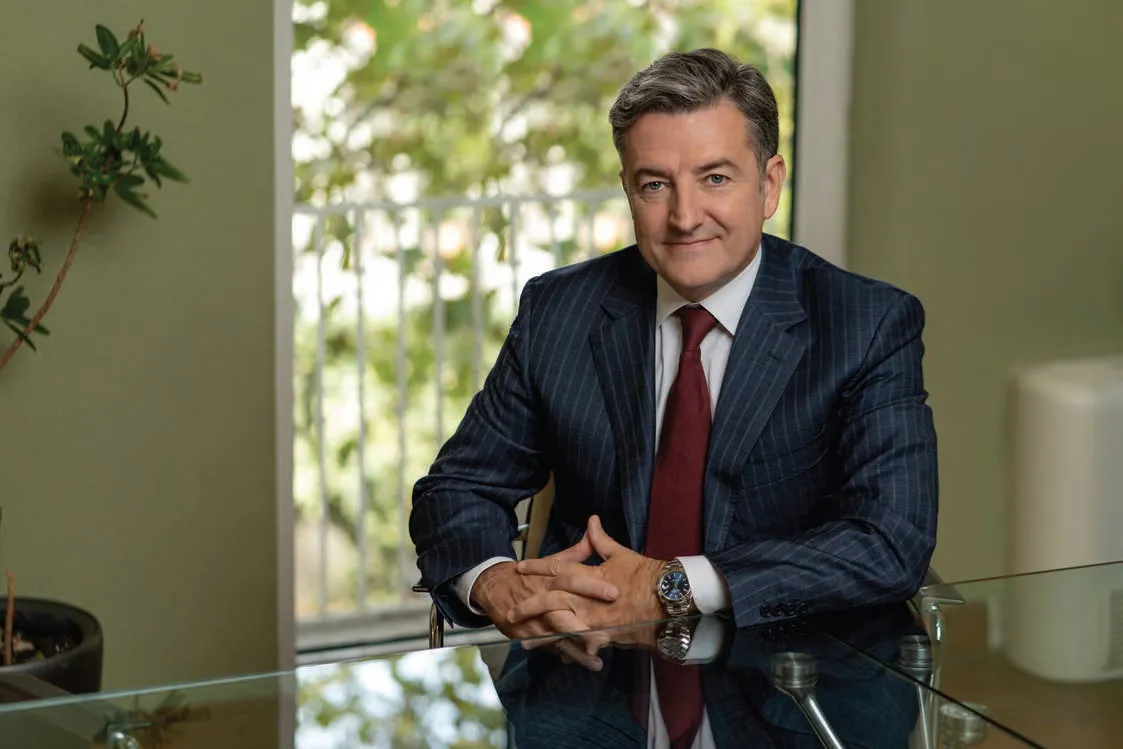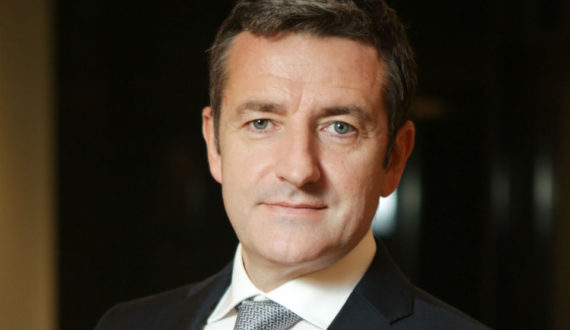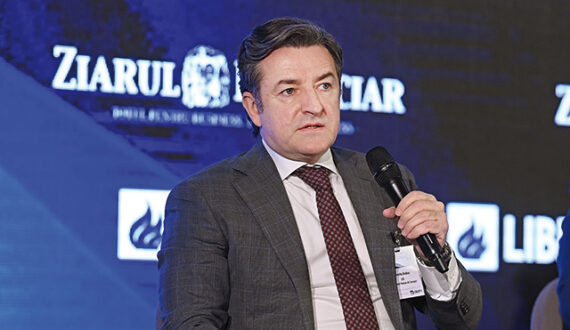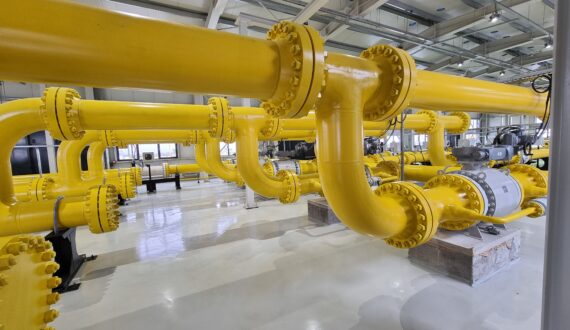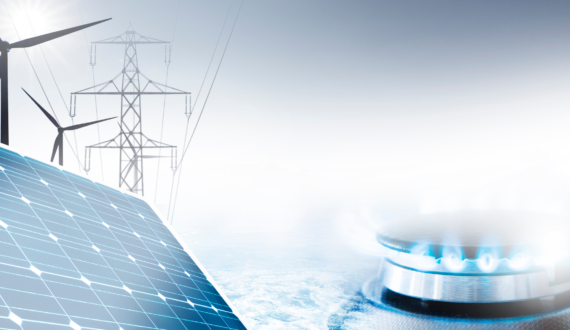– Mr. Corneliu Bodea, first of all, I want to congratulate you on the 30 years of activity of the Adrem group and wish you a happy and prosperous year! I also send congratulations to your brother – Mr. Adrian Bodea. Three decades with Adrem! How did you manage?
Why am I saying this? Because in the 30 activities, together with the Adrem partners, we tried to bring value to society through the actions we initiated and implemented. It was not easy, we went through countless crises, legislative changes, unpredictable events and technological evolution. But what kept us going was our passion for our work and respect for people and the environment. We are committed to helping modernize the industry, develop impactful projects and bring change to the lives of the people and communities in which we operate.
– I am convinced that there were also difficult moments in these years. Have you ever wanted to quit?
– Yes. I thought about giving up, selling, or just walking away. Disappointment, lack of prospects, hopelessness surrounded me at times and I felt chased and disrespected. Frustration kind of plagues you when you’re trying to build a business “like outside” and you’re surrounded by indifference, red tape, and sham. But I am very much connected to these places and to the people around me, I owe them so much that I have found the strength to continue, to overcome fleeting feelings and to contribute as much as I know and can. At the same time, I feel responsible to the many wonderful people who believed and still believe in me, employees, clients, or friends, and to them and our ideals, it is worth making even greater sacrifices.
– You are a well-known businessman in Romania. I would like to ask you to introduce yourself in a few words… What do you represent? Would you like to change something about yourself?
– Romanian entrepreneur, father of two wonderful children, passionate about leadership and interpersonal intelligence. I believe in people and support their constant personal and professional development. I enjoy being involved in the development of entrepreneurs and young talent through my participation in leadership and mentoring programs. I also want to think that I am a strategic thinker, a creator of an ever-evolving business environment with a focus on social engagement, with care for people and nature.
I wish I could be more lenient with myself, devote more time to my passions: reading, surfing and enjoying quality moments with loved ones.
– You are a model company, a family business. How do you assess the evolution of the group in these three decades, how does a Romanian business manage to resist and grow in the domestic business environment?
– The first 10 years are probably the most beautiful in the life of a company. It is the period full of courage, daring and exploration of a new business in the market, when the team coagulates and you define your vision, mission and values. From the very beginning we focused on innovation, my brother coming with the experience from the Institute of Atomic Physics set out on the road with the desire to contribute to the modernization of the Romanian industry. This is how we created our first liquid steel vacuum plant in the world that uses mechanical pumps, at the Special Steel Plant in Târgoviște, a unique technology that Adrian patented in 1999. In the same year, we also entered the automation market industrial, a segment in which today we are among the service leaders.
The second decade of activity represented a new stage of consolidation in the market. It was the period of complex works, of large projects, where our group continued to develop by providing new essential services for the energy field and new consumers. We entered the market of services for utility networks, with the activity of meter reading – today we serve 1.4 million subscribers of Distribucie Oltenia, throughout the Oltenia region. We started to provide the maintenance service of medium and low voltage electrical installations, a critical activity for the infrastructure and for the continuity of the electricity supply.
And in the last 10 years, in response to the need to support the energy transition, we have focused on the development, digitization and maintenance of electrical networks, digitization of the energy infrastructure and solutions for efficiency and smart consumption. Among our successes, I would mention that we became the most experienced installer of smart meters in Romania, with approximately one million smart meters installed, and we automated three natural gas transport pipelines, of strategic interest in the region: BRUA, Ungheni-Iași and Isaccea 1.
I am proud of our evolution and I think that what increased our resilience was the passion and dedication for what we do, but also the fact that every time we understood what the priorities were and we wanted to contribute to the development of Romania.
– The lack of specialists remains one of the biggest challenges. How does Adrem invest in specialists?
– Within Adrem, we recruit passionate, ambitious people who share our values and want to develop professionally in a dynamic sector, with a critical role in Romania’s security and development. For their development, we implement internal training programs and workshops for our colleagues to keep them abreast of changes in the field and help them advance in their careers and become better at what they do.
In addition, we are actively involved in the education of young people, future energy professionals, through our own projects – we are developing the Adrem Academy, a space where we aim to attract young people and develop them, both professionally and personally, primarily to – build a career in Adrem, but also to support the development of the workforce needed for the energy market in Romania. At the same time, we develop joint projects with our partners such as “Apprentice Electrician”, supported by Distribuție Oltenia, and by supporting associations that develop various education programs. I personally enjoy it and get involved whenever I have the opportunity in programs for the development of young specialists in our field as well as future entrepreneurs.
– What are the biggest challenges in the field in which you operate?
– As you said earlier, the human resource is currently critical, especially in the context of projects such as PNRR and Green Deal, through which we must accelerate the energy transition. We need specialists to use and implement new technologies, we need resources and programs to develop them and become experts in their field.
Another challenge we face more and more often is the legislative unpredictability that dismantles the business plans of the economic business environment, discourages investments and progress.
However, I believe that the real challenge that humanity has today is the fight against climate change, which must be supported by a change in mentality in relation to energy, its importance, and how we must produce and use it. we consume Adrem plays an essential role in Romania’s preparation for the energy transition and in the change of mentality towards sustainable consumption. That is why, in the long term, we made a commitment to sustainable development and supporting Romania in the energy transition, with an emphasis on the fight against climate change and respect for the environment and our society.
– I noted that Adrem has in its portfolio among the largest energy security projects in Romania and in the region: the automation of the BRUA gas pipeline (Bulgaria-Romania-Hungary-Austria); automation of the natural gas transport pipeline DN600 Ungheni – Chisinau; the automation of the new natural gas measuring station from Isaccea, bidirectional, capable of ensuring the import and export of natural gas from Ukraine to Bulgaria and vice versa. We are also adding smart grid digitization, renewable energy and e-mobility projects….Please elaborate and tell us how you manage them?
– In Adrem we invested in a team of professional engineers with experience in design and automation. They are passionate, dedicated and ambitious colleagues whom I am happy to have by my side. We know the applications, resources and constraints of the market as a whole and are ready to meet any technical-economic challenge.
The BRUA gas pipeline is one of the biggest projects we have worked on in recent years, for the Transgaz client. The Adrem team realized the automation of the operation of the installation along a length of 480 km between Podișor and Recaș, along which we integrated all the information from the technological installations in a centralized system.
Another similar project was the natural gas transport pipeline DN600 Ungheni – Chisinau, located on the territory of the Republic of Moldova, with strategic importance for our region, especially in the context of the conflict in Ukraine and the energy crisis. It took place over 10 months, and along 120 km of pipeline.
Supporting the energy transition is a priority for us, which is why we are continuously expanding our portfolio of energy efficiency, green energy and e-mobility projects. Last year, we integrated into SCADA 57 electric transformer stations, in five counties, and we completely refurbished 10 other stations. To support the infrastructure of electric cars, we created 83 turnkey charging stations in 21 counties. And on the solar energy side, in 2022 we installed almost 3 MW through photovoltaic systems, another 5 MW being contracted through the “Casa Verde”, “ElectricUp” programs and other works.
As a conclusion, regarding how we manage all these projects, I would say that the most important resource is people. They are the engine of all these successes. The fact that we gathered more than 1000 colleagues together, around common values and motivated by the same goals, seems to me an extraordinary thing, and the results are visible.
– What else have you proposed for this year and the ones to come? Other projects in the works?
– For this year we have budgeted a consolidated business of 250 million lei, 20% higher than last year’s estimates. We are planning energy efficiency projects that we are focusing on, but also people development projects, diversifying the portfolio of solutions and services that we offer. We are motivated to accelerate projects that support the energy transition, for a more sustainable future.
– Last year was very difficult for those who worked in the energy sector. What do you think 2023 will be like? What about the following years?
– The energy price crisis of the last year has taught us a hard but useful lesson: to put more value on energy and optimize the use of resources. I expect energy prices to decline from 2022 levels, but I don’t think they will fall to pre-pandemic levels. Thus, the trends I see for 2023 and for the following years are those related to the energy market and the continuation and even acceleration of energy transition projects, large-scale projects started previously, ensuring major investments in green energy, energy efficiency and digitization . As a new element for this year I would add to the energy sector value chain batteries for energy storage, provided for the security and stability of the energy system.
– What, in your opinion, are the solutions for overcoming the energy crisis?
– We are currently seeing positive things on the market, namely that prices have stabilized below the value of 1,000 RON/MWh and we have the mechanism of centralized electricity purchase active. However, I am concerned about the amount of energy available at producers for this mechanism, as well as the fact that most energy is traded on short and very short terms, with futures almost non-existent.
Thus, in order to overcome this crisis, I believe that in the next period the emphasis should be placed on encouraging investments in green technologies, by adopting digital technologies to improve efficiency, reduce operating costs and increase the reliability of energy systems, in order to accelerate the energy transition. In addition, the efficient use of European funds, PNRR money, state investments is also important. We have reached a moment when the role of the states will be needed. They must now make great efforts to find effective solutions, without losing sight of the changes that will occur as a result of the conflict in Ukraine.
